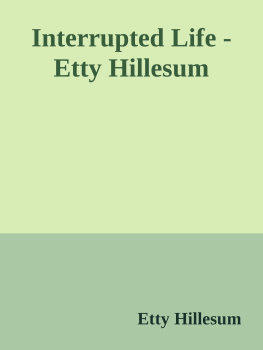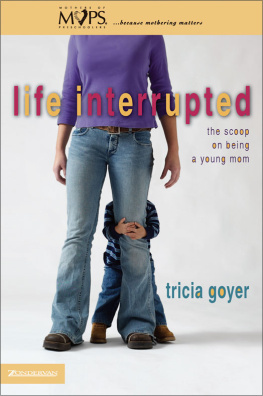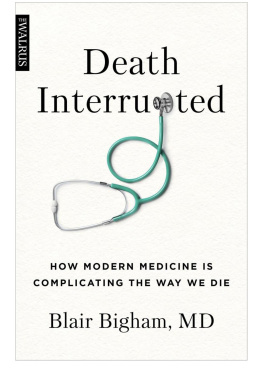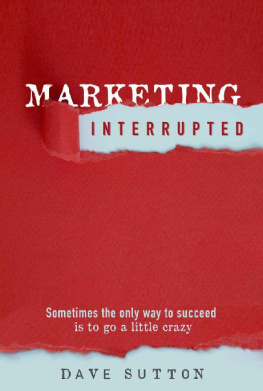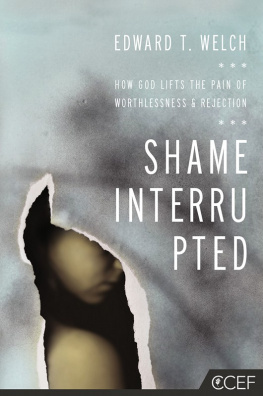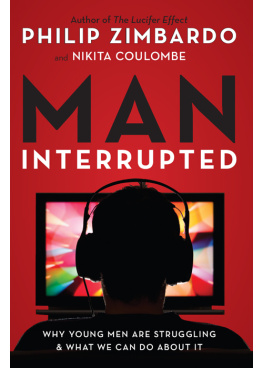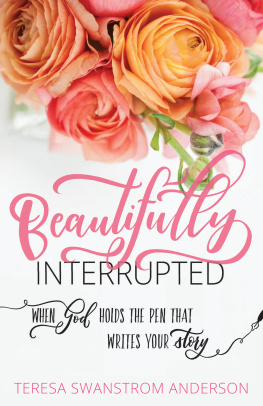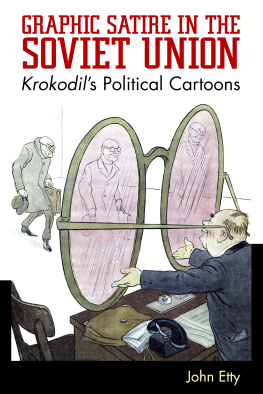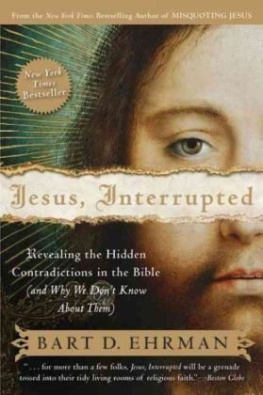Etty Hillesum - An Interrupted Life
Here you can read online Etty Hillesum - An Interrupted Life full text of the book (entire story) in english for free. Download pdf and epub, get meaning, cover and reviews about this ebook. year: 0, genre: Science fiction. Description of the work, (preface) as well as reviews are available. Best literature library LitArk.com created for fans of good reading and offers a wide selection of genres:
Romance novel
Science fiction
Adventure
Detective
Science
History
Home and family
Prose
Art
Politics
Computer
Non-fiction
Religion
Business
Children
Humor
Choose a favorite category and find really read worthwhile books. Enjoy immersion in the world of imagination, feel the emotions of the characters or learn something new for yourself, make an fascinating discovery.
- Book:An Interrupted Life
- Author:
- Genre:
- Year:0
- Rating:3 / 5
- Favourites:Add to favourites
- Your mark:
- 60
- 1
- 2
- 3
- 4
- 5
An Interrupted Life: summary, description and annotation
We offer to read an annotation, description, summary or preface (depends on what the author of the book "An Interrupted Life" wrote himself). If you haven't found the necessary information about the book — write in the comments, we will try to find it.
An Interrupted Life — read online for free the complete book (whole text) full work
Below is the text of the book, divided by pages. System saving the place of the last page read, allows you to conveniently read the book "An Interrupted Life" online for free, without having to search again every time where you left off. Put a bookmark, and you can go to the page where you finished reading at any time.
Font size:
Interval:
Bookmark:
An Interrupted Life
THE DIARIES, 1941-1943
Letters from Westerbork
Foreword
When we pick up Etty Hillesums diaries and letters today, we know from the outset what will come at their tragic end. And yet, to start reading them is to be jolted into fresh surprise. All the writings she left behind were composed in the shadow of the Holocaust, but they resist being read primarily in its dark light. Rather, their abiding interest lies in the light-filled mind that pervades them and in the astonishing internal journey they chart. The trajectory of that journey echoes classical accounts of spiritual transformation; but Ettys pilgrimage grew out of the intimate experience of an intellectual young woman-it was idiosyncratic, individual, and recognizably modern.
Aside from a few fundamental facts about her family-she came from an assimilated Jewish background-we know little about her early history, her childhood temperament, or the formative episodes of her youth. She comes to us unmediated. But an encounter with her is instantly and compellingly direct. Etty wanted, aspired to be a writer, and she has a writers knack for conveying herself onto the page with fluent immediacy, for drawing us right into her personal world. From the first entries she comes across as a wonderfully vivid personality: charming, unaffected, with funds of warmth and an eager appetite for pleasure. She enjoyed the quotidian details of her life and describes them with relish: the motley household in which she lived, the Russian lessons she gave, the walks she took through her beloved Amsterdam. On one level, then, a young woman of her time: emancipated, educated, urbane, with professional ambitions and a penchant for bohemian lifestyles. She had a variety of lovers, intimates, and a circle of interesting friends. She was a percipient observer, aware of the issues and movements of her time: socialism, fascism, anti-Semitism. Even her passing remarks about such things show penetrating and distilled insight.
But capable though she was of extroversion and engagement, her most intense need, and gift, was for the inner life. Her essential existence, she often reminded herself, took place in the privacy of self-reflection, at a desk covered with pinecones, vases of flowers, and books.
The private Etty Hillesum who revealed herself in her diary was impassioned, erotically volatile, restless, and often tormented. In the early entries, she repeatedly records swings from elation to brooding melancholy, from embracing excitement to depressed withdrawal, from expansive flights of fantasy to besetting self-doubt. She could easily be seen as one of the scores of over-sensitive, slightly neurasthenic young women from a cultivated and coddling milieu.
Such categories are not inappropriate; Etty herself thought in psychological terms. But they are also insufficient, for Etty had the kind of genius for introspection that converts symptoms into significance and joins self-examination to philosophical investigation. The diary is a continuous, animated dialogue with herself, a constant drive toward her own truth. She knew how to follow subtle movements of her feelings and how to question and criticize herself. Even in states of extreme distress, she retained an unerring sense of emotional proportion, a kind of perfect inward pitch. She recognized her own tendencies to false exaltation and self-denigration, her attraction to grandiose ideas, and her possessive greed; she upbraided herself for them, and countered them with insistence on moderation, and on the precise, modest word. My protracted headaches: so much masochism; my abundant compassion: so much self-gratification, she wrote severely. Etty knew she had to master her own excesses and conflicts, and to give some form to the chaos inside her.
Her chosen guide in this endeavor was Julius Spier, a Jungian psychoanalyst cum palm reader and general guru. What can we make of the curious, ambiguous relationship between them? By todays standards, aspects of it seem questionable. As part of his
therapeutic method, Spier engaged in eroticized tousles with his patients, which were not, apparently, supposed to lead to sexual intercourse. Ettys descriptions of his tantalizing touches and
kisses, of the casual liberties he took with admiring female patients, strike us as highly incorrect, to say the least. Yet, in putting
her trust in this strange mentor, Etty was acting in tune with her time. The interwar decades were a period of eclectic psychoanalytic experiments, of eccentric adventures in self-exploration. As is so often true with charismatic figures, Spiers virtues may have
been discernible only through personal contact. Etty was sometimes perplexed by him; but even after their relationship was consummated, she never doubted his integrity or his capacity to heal. She thought of him as gentle, good, spiritually complex; and
she threw herself into her work with him unreservedly.
Perhaps Ettys relationship with Spier belonged less in the category of psychotherapy than in a much older tradition of active philosophical teaching. Because she believed in him, Spier became her task, the person against whom she tested and questioned herself, the occasion of her struggle and growth. Her most arduous battle was with the problem of sexuality in its modern, feminine variant. Etty was both seduced and riven by her desires, torn between romantic yearnings for submergence and the need for independence. Through her real and metaphorical wrestlings with Spier, she trained herself to check her impulses and restrain the impetuousness of her needs. She discovered that she could exist on her own without losing herself in another, and feel affection without making proprietorial claims. In other words, she learned the kind of love that is closer to selfless agape than to urgent eros and that combines deep sympathy with calm detachment.
The process of change is always mysterious, but in the middle stages of Ettys diary, it becomes almost palpable. Her writing becomes suffused with simpler, more serious tones. As both her tenderness and detachment deepened, she reported a new serenity, a sense of identity that remained steadily itself. Increasingly, her writing points toward that border where attentiveness to subjectivity meets contemplation, where emotional intuition converges with moral thought.
In all of this, Etty had the courage to follow the thread of her own experience-and that thread took her further still, in more unexpected and radical directions. Etty never lost her mercurial responsiveness, even as she began to describe states we are accustomed to identify as religious: gratitude for all that was given to her, a profound self-acceptance and acceptance of others, and a conviction, not of any specific set of meanings, but of meaningfulness itself-of the inward beauty and rightness of life. By winding her way through her own psyche to the point of selfreconciliation, she had come to a place where she could feel the hidden harmony of the world.
Of course Etty was making her later journal entries as the world was being torn apart by war, as the atmosphere for Dutch Jews turned daily more dangerous, as her friends were being deported and killed. Was it escapist of her to keep looking inward at such a time? She asked the question herself and answered in the negative. I feel like a small battlefield, in which the problems of our time are being fought out, she wrote early in the diary, and she continued to be convinced that it was her vocation and everyones duty to look first unto themselves and solve the war within. Certainly, her hard-won strength met the severest of tests. She faced the inexorable progress toward
destruction without evasion. She confronted dangers to herself and her family with an almost stoical fearlessness, a balance that was no longer undermined by external assaults.
Next pageFont size:
Interval:
Bookmark:
Similar books «An Interrupted Life»
Look at similar books to An Interrupted Life. We have selected literature similar in name and meaning in the hope of providing readers with more options to find new, interesting, not yet read works.
Discussion, reviews of the book An Interrupted Life and just readers' own opinions. Leave your comments, write what you think about the work, its meaning or the main characters. Specify what exactly you liked and what you didn't like, and why you think so.

